business
Metaplanet Acquires Exclusive License to Launch Bitcoin Magazine Japan
Published
3 months agoon
By
admin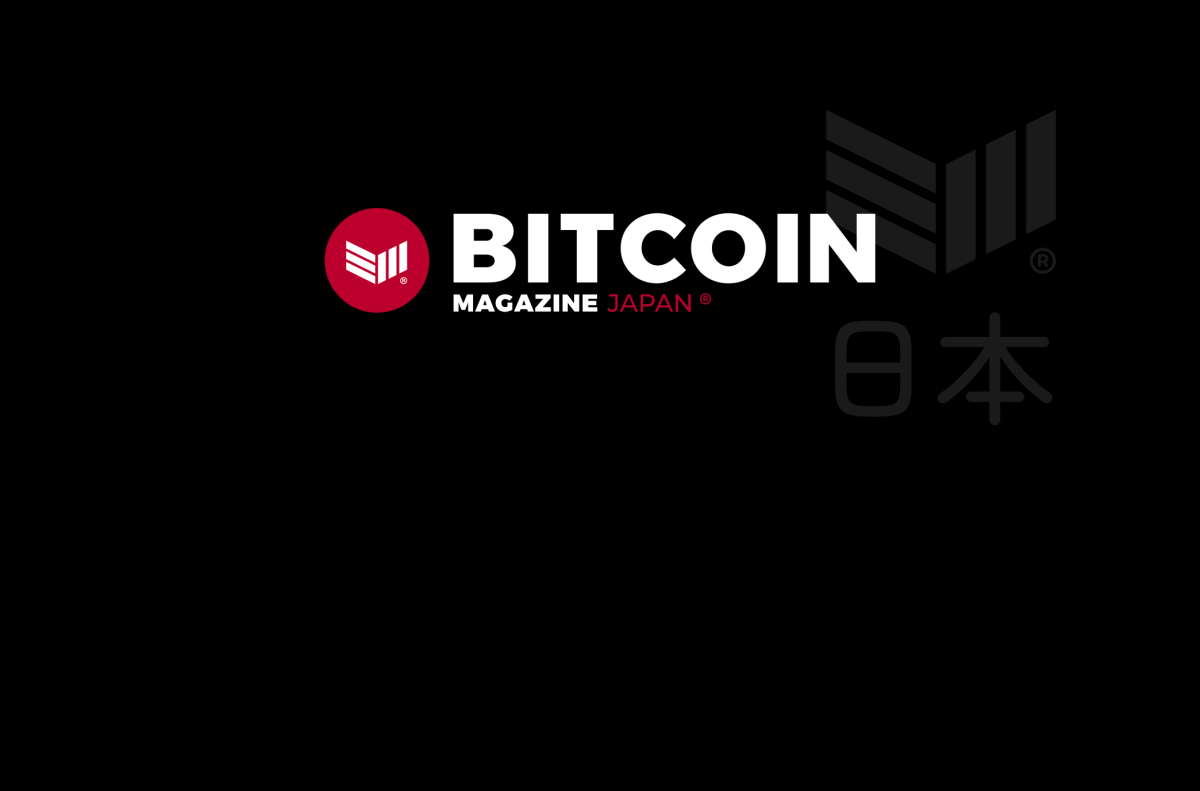
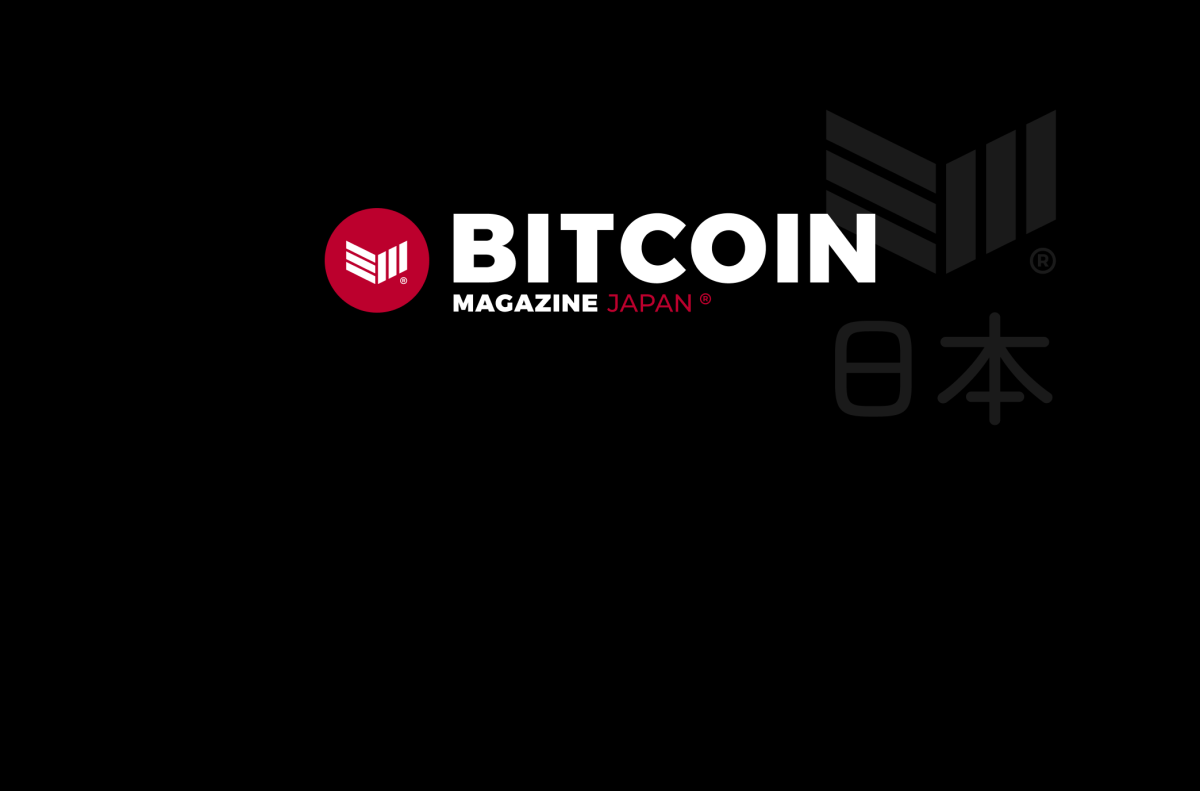
TOKYO, JAPAN – July 26, 2024 – In a significant move to broaden its international reach, Bitcoin Magazine, in collaboration with Metaplanet (TYO), announced the opening of its new office in Tokyo, Japan, on July 26, 2024, at The Bitcoin Conference in Nashville, TN. This initiative underscores a joint commitment to providing localized, high-quality content tailored to the unique needs and interests of the Japanese Bitcoin community.
As one of the first countries to recognize Bitcoin as a legal form of payment, Japan has fostered a supportive ecosystem for the innovation and use of Bitcoin as a currency. Tokyo, in particular, boasts a dynamic financial sector, a high concentration of tech-savvy consumers, and a robust network of Bitcoin-friendly businesses and services. This makes Tokyo an ideal hub for the continued global expansion efforts of both Bitcoin Magazine and Metaplanet.
Metaplanet, a tech leader focused on facilitating Bitcoin integration into existing and developing corporate frameworks, aligns seamlessly with Bitcoin Magazine’s goal of global hyperbitcoinization. Their commitment to excellence and adherence to Bitcoin-only standards ensures integrity and a shared vision with Bitcoin Magazine’s ethos.
Mike Germano, President of Bitcoin Magazine, stated, “As the oldest and most established Bitcoin brand, Bitcoin Magazine is honored to collaborate with a pioneer like Metaplanet to enter the Japanese market. We are excited to not only integrate our presence but also to culturally enrich our local content, ensuring it truly resonates with the unique and vibrant Japanese community.”
Simon Gerovich, CEO of Metaplanet, added, “This partnership marks a significant milestone for Metaplanet. By collaborating with Bitcoin Magazine, we aim to further Bitcoin adoption in Japan through innovative and engaging content tailored specifically for our community.”
The launch of Bitcoin Magazine Japan is part of a broader strategy to establish a presence in key markets around the world. Following the successful launch of Bitcoin Magazine Switzerland, this move aims to expand reach and impact, ensuring that Bitcoin enthusiasts everywhere have access to the highest quality information and resources.
Metaplanet’s exclusive license to operate Bitcoin Magazine Japan will enable the publication to leverage local expertise and networks to create a platform that resonates deeply with the Japanese audience. This partnership will advance Bitcoin adoption in Japan through dedicated efforts, including exclusive interviews with prominent Japanese Bitcoin figures, special edition publications, and interactive online sessions. Plans to expand the print publication and live events sector are also underway.
Join Us in Pioneering Global Bitcoin Adoption
As the most trusted voice in the Bitcoin community, Bitcoin Magazine is actively seeking professional partners for further international expansions. Our goal is to support additional languages and regions, extending our influence and fostering Bitcoin adoption worldwide. If you share our vision and are interested in learning more about partnership licensing opportunities, we invite you to reach out.
About Bitcoin Magazine:
Bitcoin Magazine, the world’s first publication covering Bitcoin, serves its international readership with innovative ideas, breaking news, and global impact at the intersection of finance, technology, and Bitcoin. Operating from Nashville, Tennessee, Bitcoin Magazine is published by BTC Media. For the latest in Bitcoin news, visit BitcoinMagazine.com.
About Metaplanet:
Metaplanet Inc., a publicly traded company on the Tokyo Stock Exchange, has strategically reoriented its focus towards Bitcoin, adopting it as the principal treasury reserve asset. With over a decade of diversified business experience in Japan, spanning finance, trading, and real estate, Metaplanet is now committed to Bitcoin accumulation to enhance shareholder value. Through strategic partnerships and a Bitcoin-centric approach, Metaplanet aims to drive global Bitcoin adoption, guiding organizations in incorporating it as a strategic reserve asset. For more information, visit www.metaplanet.jp.
Source link
You may like


Radiant Capital exploited for $50m on Arbitrum, BSC


Prada Reveals Futuristic Spacesuit for NASA’s Next Moon Landing


Is $5000 Ethereum Price Possible In 2024?


SHINOBI: Gaza is the most powerful demonstration of bitcoin since Wikileaks
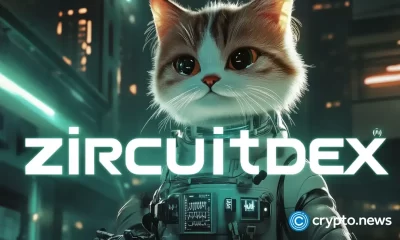

Analysts forecast 3 altcoins set for double-digit gains in Q4 2024


How Crypto Investors Are Bracing for Volatility and What It Means for Bitcoin’s Future
Bitcoin
Blackrock CEO Is Right: Trump and Kamala Can’t Stop Bitcoin
Published
18 hours agoon
October 16, 2024By
admin


I’ll admit – just a few years ago, I’d be shocked to hear myself say that the CEO of BlackRock is making good points about Bitcoin.
As head of the world’s largest asset manager, I assumed Larry Fink would be Bitcoin’s biggest critic. But compared to dismissive remarks on Bitcoin from other Wall Street leaders like Jamie Dimon, Fink’s perspective is a refreshing change.
If you think otherwise, yesterday’s earnings call proves it.
There, Fink declared, “I’m not sure if either president would make a difference” on Bitcoin’s growth,” adding “I don’t believe [Bitcoin’s rise] is a function of regulation.”
He went on to compare Bitcoin’s growth to much larger markets like mortgages, noting liquidity and transparency drives adoption more than rules.
Here's full Larry Fink quote on bitcoin/digital assets from the Q3 earnings call, he says bitcoin asset class in itself, they talking with institutions worldwide about allocation, dig assets remind him of the early days of the mortgage market (now $11T) and POTUS won't make dif pic.twitter.com/McvpW7cCnB
— Eric Balchunas (@EricBalchunas) October 14, 2024
It’s wild that the CEO of an $11 trillion company is not just embracing Bitcoin, but that he gets that Bitcoin thrives because it is an apolitical, decentralized, global money.
Regulation aside, Bitcoin marches on indifferently. Fink seems to grasp what many Bitcoiners don’t – that political winds don’t sway Bitcoin’s course long-term. Neither Donald Trump or Kamala Harris can stop Bitcoin from setting new all-time highs.
Bitcoin thrives on its own technical merits, not regulatory benevolence.
This independence was always its promise. Now, the world’s financial giants aren’t fighting it, but joining in. Bullish.
Source link
business
Vexl: The Next Generation Bitcoin P2P Trading App
Published
1 week agoon
October 9, 2024By
admin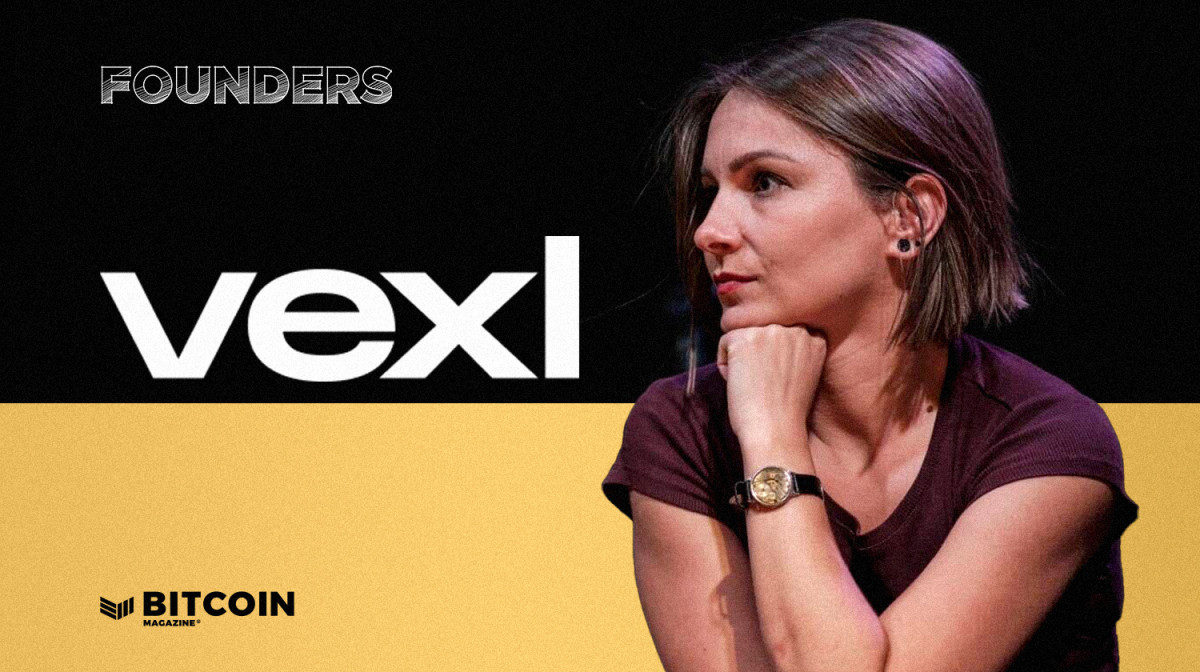

Company Name: Vexl
Founders: Lea Petrášová, Marek Palatinus and Pavol Rusnak
Date Founded: June 2022
Location of Headquarters: Prague, Czech Republic
Amount of Bitcoin Held in Treasury: The majority of the treasury is bitcoin
Number of Employees: 5 full-time employees and 5 part-time employees/volunteers
Website: https://vexl.it/
Public or Private? Private
Lea Petrášová is a cypherpunk at heart with over 10 years of experience in the world of software development.
This made her a perfect candidate to help create Vexl, an open-source app that enables users to conduct private peer-to-peer bitcoin transactions in a relatively easy manner.
With Vexl, Petrášová and the team from SatoshiLabs (well-known for creating Trezor hardware wallets) created what Petrášová terms a “social network” that connects buyers and sellers of bitcoin via the contacts in their phone as well as the contacts of their contacts. What is more, the communication between users is private, and Vexl doesn’t charge for the service it provides.
Petrášová and the team at Vexl are on a mission to enable people to use Bitcoin the way it was intended to be used — without KYC, privately and without third-party intermediaries involved in the process.
We spoke with Petrášová to get more details on Vexl’s mission.
Frank Corva: Please tell us about Vexl’s mission.
Lea Petrášová: We believe that without the freedom to transact, we have no other rights. Bitcoin gives us the ultimate entry ticket to a financial system that is not inherently exploitative and oppressive.
However, for it to serve this purpose, it cannot be tied to one’s identity. We provide our users with an option to buy or sell bitcoin peer-to-peer without KYC, in a way that is not only private, but also accessible, user-friendly, and secure.
Corva: What were you doing before Vexl?
Petrášová: I used to be a project manager for a small venture fund that also operated as a software house. In 2018, I launched a spin-off focused exclusively on web3 development, particularly in DeFi. While the projects were academically interesting, after selling the company, I realized I wanted to dedicate my time and energy solely to Bitcoin.
Corva: How did the idea for Vexl come about and how did you get involved?
Petrášová: This idea had actually been brewing in Slush‘s (co-founder of SatoshiLabs, Trezor, Vexl) mind for a few years. As one of the industry’s OGs, he anticipated the regulations long before they came into effect.
When he found out I had recently wrapped up my previous job, he reached out and pitched what would later become Vexl, essentially offering me the opportunity to take on the executive management of the project. I didn’t hesitate for a second.
Corva: Vexl seems to embrace much of the bitcoin ethos. It’s an app that allows for peer-to-peer trading, it doesn’t require much KYC and it’s open-source. Why was it important for you to design it this way?
Petrášová: We’re not just Bitcoiners; we’re also cypherpunks and activists.
When we came up with Vexl, we were solving our own problem: how to buy or sell Bitcoin without KYC, outrageous fees, or significant security and safety risks.
We couldn’t design a product we wouldn’t be willing to use ourselves. There was never any debate about the nature of the software—we knew from day one it had to be open source, KYC-free, and peer-to-peer.
However, we spent a lot of time researching and balancing the “trilemma” of usability, security, and privacy.
Corva: What has it been like to work with Pavol Rusnák, a legend in the bitcoin/crypto wallet space?
Petrášová: Humbling. He’s the kind of thinker you can ask any question, and he’ll respond with an original answer. The range of his knowledge and interests is deeply impressive. Yet, he approaches people and projects with kindness, respect, and most importantly, a great sense of humor. He’s truly inspiring.
Corva: You don’t plan to monetize Vexl. Why?
Petrášová: We strongly believe in the importance of our mission and are committed to making it as accessible as possible.
Corva: How will Vexl continue to exist if you don’t monetize it?
Petrášová: We rely directly on donations and grants. I have deep gratitude and mad respect for everyone who has helped us make Vexl a success. But thanks to open source, if, for any reason, we were to fail, I want to believe that someone else would pick up where we left off and keep things moving forward.
Corva: Vexl is essentially a messaging app, something that connects buyers and sellers to transact between themselves much like LocalBitcoins did. Why did you create something like this right now?
Petrášová: Because we clearly saw the need. Think about it — Bitcoin is currently the 6th largest monetary asset, aspiring to become a global, universal store of value.
Governments, through various third parties and financial institutions, can create registries of bitcoin holders. These individuals could then be censored, prosecuted, taxed, and have their ownership controlled, compromised, or even outlawed.
Knowing the identities of Bitcoin users weakens Bitcoin’s ability to function as a store of value independent of state power. That was the first part of our motivation.
The second part of our motivation was much more practical: Every time I orange-pilled someone and didn’t want to send them to an exchange, I didn’t have a good alternative. My options were either selling them my own bitcoin or going through a lengthy search to find someone else who could.
Don’t get me wrong, I’m a huge fan of platforms like LocalBitcoins. But as someone who has never bought bitcoin with KYC or registered on an exchange, I know firsthand the limitations that come with options like this.
Corva: How does Vexl differ from other P2P apps like Hodl Hodl, Bisq and Peach Bitcoin?
Petrášová: Well, first of all, we’re a non-profit, so we operate in a completely different space. I don’t see other solutions out there as competing, rather view them as complementary.
The real innovation that Vexl introduces is our unique reputation model. On our marketplace, you can only view anonymized offers from your contacts and their contacts. Until both parties decide to reveal their identities, you don’t know who the other person is, but you can always see how many mutual contacts you share and who those people are, and eventually ask them for a reference.
This allows you to better assess the individual risk of the counterparty, which is nearly impossible when you’re connecting two strangers from opposite sides of the world — not to mention, it can be downright dangerous if you’re using a fiat wire transfer for settlement.
If you really think about it, we managed to bring a real-world reputation into an app. And this social aspect — human interactions and experience — can’t be replaced by any technology. That’s why on Vexl there is no escrow, no fees, and no need to already have bitcoin in order to join.
Lastly, I’m particularly proud of our user experience. While creating Vexl, I kept asking myself, “Could my aunt use this without a hitch?” That mindset shaped our UI, and I believe it’s far more user-friendly than anything else out there.
Corva: Why does Vexl not push to decentralize its backend?
Petrášová: We’re a non-profit with very lean operations. In a team as small as ours, we have to think twice when choosing what to prioritize.
While decentralizing the backend is something we’ll focus on in the future, right now our backlog is full of more pressing app improvements.
What’s great is that Vexl is already politically decentralized. Anyone who doesn’t want to rely on my decisions can simply take the code and alter it however they see fit.
Corva: Why does Vexl ask for phone numbers?
Petrášová: If you zoom out, you’ll see that Vexl is, ultimately, a social network. Anyone who has ever tried to build one from scratch will agree that it’s an incredibly difficult task. So, we chose a different route: Why not build on top of an existing network? But then came an even bigger question: Which one?
We also wanted something that’s not going away anytime soon and that’s widely adopted across the world.
The answer was clear to us: using phone numbers and contact lists. From there we just had to find a way to use them while still keeping them private and secure.
Corva: Do you ever see mass adoption of Vexl or do you think the average person will find going to a regulated exchange like Kraken more convenient?
Petrášová: Sometimes I get asked what my biggest apprehension is as the CEO of a Bitcoin company, and my answer is always “ignorance.” People often don’t care about financial freedom until it’s too late.
That being said, nothing is better marketing for us than the current financial system becoming more and more unbearably unusable and commerce becoming increasingly permissioned. From this perspective, it would be a beautiful world if tools like Vexl became obsolete.
But Vexl has been invented, and it cannot be uninvented. Maybe it will be used for peer-to-peer bitcoin transactions. Or it might be used in the gig economy or to pay for goods in bitcoin.
Ever since we introduced categories in the marketplace, we’ve seen circular economies booming. I’m building Vexl for everyone who has the courage to claim their financial sovereignty — even if it only serves a small community of users.
Corva: Where are you seeing the most adoption for the app thus far? Why do you think people in these regions are adopting it?
Petrášová: Most of our users are from the Czech Republic and Slovakia. I think the success has a lot to do with the history of these countries and their economic isolation during communist times. There is a long tradition of people hedging against oppression with stronger currencies and participating in the gray economy. Additionally, the support of SatoshiLabs definitely helped us a lot during the launch, especially in Slovakia and the Czech Republic, where SatoshiLabs is well-known and respected.
We also see significant growth in Germany, Austria, Italy, Switzerland and the UK, mostly scaling through meetups. In recent months, I am really thrilled to see local Vexl initiatives thrive in African countries, as well.
Corva: What’s next for Vexl?
Petrášová: Over the course of the summer, we managed to successfully rewrite our backend, which had been a major hurdle for future development. This opened up the opportunity for us to introduce a wide variety of improvements to the social network that we had on our roadmap for a long time.
Another major focus is providing education about the importance of non-KYC Bitcoin. It’s disturbingly common that users don’t realize the true cost they pay for comfort or convenience when giving up their personal data on financial institutions.
Source link
business
Mark Cuban Tells Harris Camp FTX Debacle Could Have Been Avoided in US Under Different SEC Leadership
Published
2 weeks agoon
October 5, 2024By
admin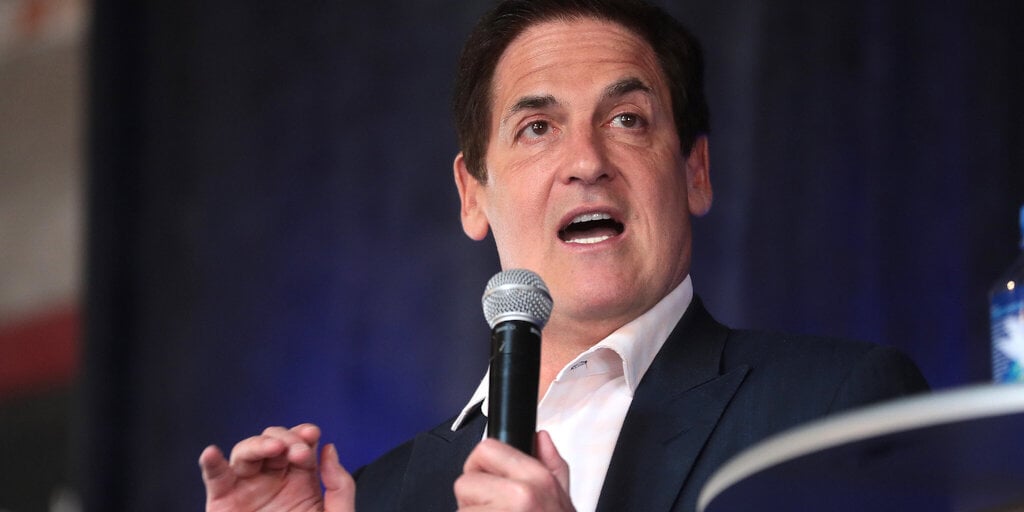
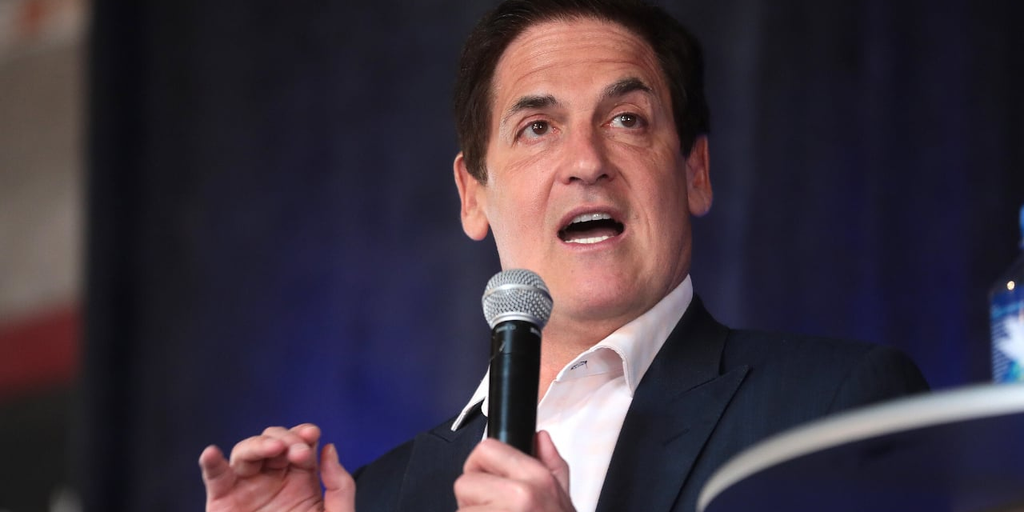
Billionaire investor Mark Cuban says he told Vice President Kamala Harris’ crypto advisor over lunch the collapse of FTX could have been avoided if U.S. Securities and Exchange Commission Chair Gary Gensler had not been at the helm.
Speaking during an interview with Farokh Sarmad of Rug Radio, a sister company of Decrypt, Cuban criticized the SEC’s reliance on enforcement through litigation rather than implementing proactive regulation tailored to the crypto industry.
“What I said was, ‘Look at FTX US and FTX Japan.’ I said, ‘If Gary Gensler would have done just what they did in Japan—FTX, Three Arrows Capital— none of them would have gone out of business,’” Cuban told Sarmad.
The SEC did not immediately return Decrypt’s request for comment.
Cuban pointed to Japan’s regulatory framework, which mandates that crypto businesses collateralize digital assets held on behalf of customers, as a model that could have prevented the crisis that shook the industry in 2022.
The island nation became one of the first major economies to implement a comprehensive regulatory framework for digital assets. Its Financial Services Agency framework for regulating crypto exchanges is part of the country’s Payment Services Act and Financial Instruments and Exchange Act.
Coming into effect in 2017, Japan’s framework mandates strict oversight of crypto exchanges, including the requirement for exchanges to separate customer assets from their own and maintain sufficient reserves to ensure that customer funds are protected.
Regulations were further strengthened after the Coincheck hack in 2018, leading to stricter oversight and additional requirements for crypto exchanges to safeguard customer assets, including enhanced security protocols and capital requirements.
In particular, Japan requires crypto businesses to hold collateral for digital assets they manage on behalf of customers, ensuring that the assets are backed and protected in case of insolvency or other operational failures.
“You have to put it in cold storage so it’s segregated,” Cuban said, referring to the need to separate user funds from a crypto business’ control. “You can’t just take the money like [former FTX CEO] Sam Bankman-Fried did and loan it to yourself.”
Crypto political landscape
Cuban’s comments come as tensions between political camps in crypto have flared in the lead-up to the U.S. election in November. Many of those within the industry believe former President Donald Trump to be a stronger candidate protecting their interests.
Trump has vowed to turn the U.S. into the “crypto capital of the planet” if re-elected. His platform includes a pro-crypto stance, and he has said he intends to foster a more crypto-friendly regulatory environment, which contrasts with the SEC’s current approach under Gensler.
Harris, meanwhile, has remained vague on specific future policies for crypto, saying her administration would “invest in biomanufacturing and aerospace, remain dominant in AI and quantum computing, blockchain and other emerging technologies.”
In any case, the revelation that Cuban told Harris stronger regulations could have helped avoid an industry collapse adds to the existing discussions the billionaire claims to have already taken place with her advisors.
In July, Cuban claimed he had received “multiple questions from her camp about crypto,” taking it as a “good sign” that Harris was receptive to shoring up regulations in the world’s largest economy.
Daily Debrief Newsletter
Start every day with the top news stories right now, plus original features, a podcast, videos and more.
Source link

Radiant Capital exploited for $50m on Arbitrum, BSC

Prada Reveals Futuristic Spacesuit for NASA’s Next Moon Landing

Is $5000 Ethereum Price Possible In 2024?

SHINOBI: Gaza is the most powerful demonstration of bitcoin since Wikileaks

Analysts forecast 3 altcoins set for double-digit gains in Q4 2024

How Crypto Investors Are Bracing for Volatility and What It Means for Bitcoin’s Future
Standard Chartered-Backed Zodia Custody Launches Wallet, Partners Galaxy Digital

Bitcoin’s False Dichotomy between SoV and MoE

Crypto expert tips Flockerz as the next 100x meme coin

Polkadot (DOT) Gearing Up For ‘Massive Breakout’, Will It Skyrocket To $20?

Metaplanet Stock Soars 9% Amid Rising Revenue With This Latest Bitcoin Strategy

Whales pile into ENA as token rallies over 96% in 30 days

Billion-Dollar Bank Refuses To Reimburse Customer After $10,000 Stolen From Account – Until the Media Gets Involved: Report

Lawyer Highlights Why SEC Challenges XRP Futures In Bitnomial Case

Blockcast raises $2.85m to scale decentralized content delivery on Solana
182267361726451435

Top Crypto News Headlines of The Week

Bitcoin Open-Source Development Takes The Stage In Nashville

Ethereum, Solana touch key levels as Bitcoin spikes

New U.S. president must bring clarity to crypto regulation, analyst says

Why Did Trump Change His Mind on Bitcoin?

Bitcoin 20% Surge In 3 Weeks Teases Record-Breaking Potential

Ethereum Crash A Buying Opportunity? This Whale Thinks So

Will XRP Price Defend $0.5 Support If SEC Decides to Appeal?

Shiba Inu Price Slips 4% as 3500% Burn Rate Surge Fails to Halt Correction

‘Hamster Kombat’ Airdrop Delayed as Pre-Market Trading for Telegram Game Expands

Citigroup Executive Steps Down To Explore Crypto
Mostbet Güvenilir Mi – Casino Bonus 2024

Bitcoin flashes indicator that often precedes higher prices: CryptoQuant
Crypto Market Movers: 5 Altcoins Making Waves This Bull Run
Trending

 1 month ago
1 month ago182267361726451435

 24/7 Cryptocurrency News2 months ago
24/7 Cryptocurrency News2 months agoTop Crypto News Headlines of The Week

 Opinion3 months ago
Opinion3 months agoBitcoin Open-Source Development Takes The Stage In Nashville

 Bitcoin3 months ago
Bitcoin3 months agoEthereum, Solana touch key levels as Bitcoin spikes

 News1 month ago
News1 month agoNew U.S. president must bring clarity to crypto regulation, analyst says

 Donald Trump3 months ago
Donald Trump3 months agoWhy Did Trump Change His Mind on Bitcoin?

 Bitcoin3 months ago
Bitcoin3 months agoBitcoin 20% Surge In 3 Weeks Teases Record-Breaking Potential

 Altcoins2 months ago
Altcoins2 months agoEthereum Crash A Buying Opportunity? This Whale Thinks So


